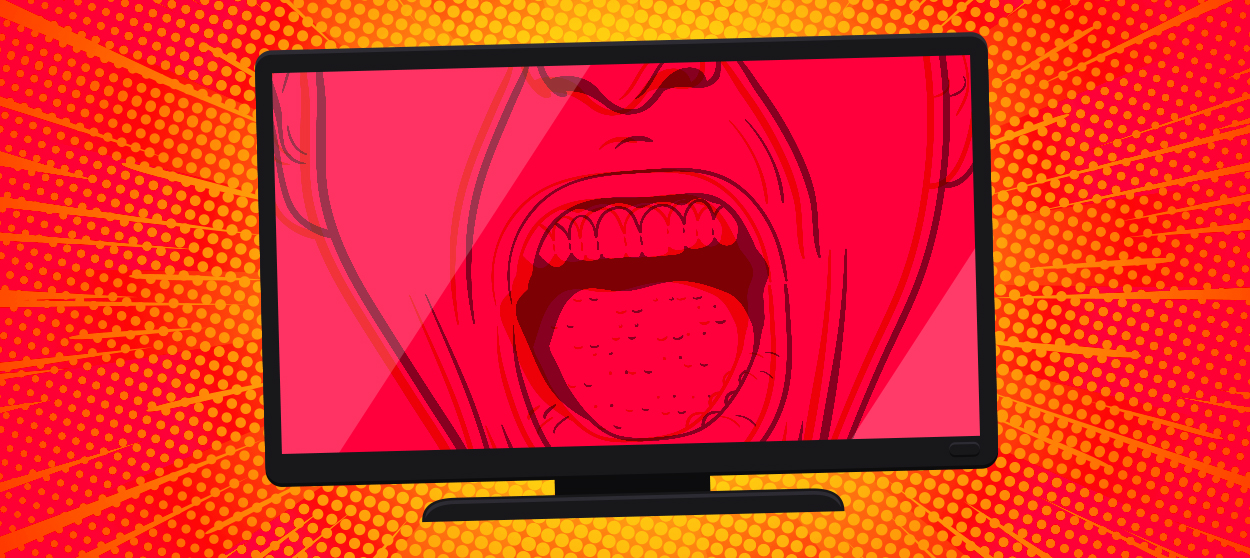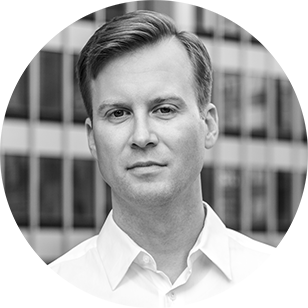Big Brother's persistent problem with racism
The show's mishandling of race reflects America's general inability to confront prejudice


A free daily email with the biggest news stories of the day – and the best features from TheWeek.com
You are now subscribed
Your newsletter sign-up was successful
Despite its name, reality television has often offered its viewers more fantasy than reality. That's probably why the genre remains so popular. But sometimes reality TV can be just a little too real.
That's certainly what it feels like on this summer's Big Brother, the hit CBS reality competition television show in its twenty-first season. Each year, the show assembles a group of mostly-white, mostly-hot twenty-somethings, locking them into a sealed house where they live under constant surveillance for several months and vote each other off one by one. The isolation and competition that drives Big Brother resembles the premise behind CBS' other megahit show Survivor, although Big Brother's houseguests certainly enjoy better food and comfier beds than Survivor's castaways. But the particular nature of Big Brother, including the 24-hour footage of the house that diehard fans can watch online, has always given the show an air of social experimentation. What can we learn when we cut off a group of Americans from the outside world and see how they behave?
Perhaps too much. Once again, what we've seen is that members of the Big Brother cast can't stop themselves — even knowing they are under continuous observation — from letting out their prejudices. Racism and other bigotries have long plagued the Big Brother franchise — and reality TV more broadly — but this season's ugliness feels particularly pointed and problematic given our political moment. Meanwhile, CBS's mishandling of its show demonstrates the complicity of network television in fomenting the very conditions that encourage racism while doing everything it can to cover it up, and reflects the broader casualness with which white Americans dismiss or ignore the very real racism all around them — not just on television.
The Week
Escape your echo chamber. Get the facts behind the news, plus analysis from multiple perspectives.

Sign up for The Week's Free Newsletters
From our morning news briefing to a weekly Good News Newsletter, get the best of The Week delivered directly to your inbox.
From our morning news briefing to a weekly Good News Newsletter, get the best of The Week delivered directly to your inbox.
Big Brother's problems this season started on the first episode when three houseguests were immediately nominated for elimination. That all three cast members were non-white — out of a cast that includes only five racial minorities — and that they had been put on the chopping block by Jackson Michie, a muscled good ol' boy from Tennessee, suggested dark days ahead for the show. In a new twist for the program, the contestants who were voted out in the first three weeks didn't have to immediately leave the house but were instead sidelined to Camp Comeback, where they could compete to return to the game. But hewing to Big Brother tradition, the white majority house sent one non-white cast member after another — two African-American players and one Bangladeshi-American competitor — into purgatory before unceremoniously kicking all three out in one fell swoop last week, a brutal visual for the show. On Thursday night's show, the house stayed consistent, voting out Isabella Wang, a Chinese-American player from New Jersey, leaving only one non-white contestant out of 12 left in the game.
The cast's rapid whitening of the house has happened alongside a steady stream of racist comments from some of its members, something that has been well documented by those following the 24-hour live feeds. But you would hardly know that from watching the episodes of the show which run in primetime three nights a week. Instead, Big Brother's producers have stripped the broadcast of those racist comments and, even more importantly, cut the episodes so as to give the white offenders what Nicholas Caruso over at Pop Dust has called "nice-guy edits." (Off-camera, Big Brother producers have reportedly warned one particularly egregious cast member about his racist comments, a move that seeks to protect the contestant as much as it does the show itself. Publicly, CBS executives released a statement this week saying they "share some of the viewers' concerns.")
Equally troubling, on several occasions CBS has switched the live feeds away from houseguests whenever they begin discussing racist incidents in the house. Meanwhile, Kemi, an African-American woman who was eliminated last week, has claimed the show's producers tried to goad her into playing the part of the sassy black woman. "They were like, ‘Oh, why don't you, like, wag your finger and be like, ‘Uh uh girlfriend'," Kemi said.
That wouldn't be surprising for a genre that has relied heavily on typecasting and racial stereotyping. A 2018 study found that African-American reality contestants, especially women, are overwhelmingly portrayed as angry and verbally aggressive. Whether that's a function of casting, editing, or prodding almost doesn't matter. The result is a television landscape awash in demeaning depictions of African Americans.
A free daily email with the biggest news stories of the day – and the best features from TheWeek.com
Perversely, that problem has only grown worse with the diversification of reality television casts. When reality television emerged nearly 20 years ago, one of the biggest criticisms lodged against early shows concerned how few non-whites appeared on many of the programs. On competition shows, that frequently meant that the token African-American contestant was among the first to go. From 2002 to 2016, for example, no black contestant on either The Bachelor or The Bachelorette made it longer than five weeks on the show — and almost 60 percent were escorted out within the first two weeks. Last year, under pressure, ABC made Rachel Lindsay the first African-American star of either franchise, a move that also prompted the network to put together its most diverse cast ever. Yet even that decision only reinforced how expendable persons of color have been on most reality shows.
Reality television, of course, isn't alone in treating non-white persons as extraneous or depicting them with simplistic caricatures. Rather, those are persistent problems of the larger media — and, indeed, of American culture generally.
You don't have to work too hard to see the connection between the Big Brother producers' generous editing on behalf of white cast members on one hand and the extensive efforts media outlets have made to profile Trump's white working class supporters on the other. The consequence of both efforts means that white bigotry — and and white bigots — continues to benefit from nuanced, even sympathetic, portrayals in the media while non-white Americans — the very victims of that bigotry — continue to be overlooked at best and, far more often, typecast and demonized. The whitewashing of racism on Big Brother takes place in the same media universe that hesitates to call Donald Trump's constant racist words exactly that.
This summer, that obfuscation is happening on both the television airwaves and from the Oval Office. Trump has often been described as our "reality TV president." But with children locked in cages at the southern border and the president ordering non-white congresswomen to leave the country, it's almost unreal how true that now seems.
Neil J. Young is a historian and the author of We Gather Together: The Religious Right and the Problem of Interfaith Politics. He writes frequently on American politics, culture, and religion for publications including The New York Times, The Atlantic, the Los Angeles Times, HuffPost, Vox, and Politico. He co-hosts the history podcast Past Present.
-
 Sepsis ‘breakthrough’: the world’s first targeted treatment?
Sepsis ‘breakthrough’: the world’s first targeted treatment?The Explainer New drug could reverse effects of sepsis, rather than trying to treat infection with antibiotics
-
 James Van Der Beek obituary: fresh-faced Dawson’s Creek star
James Van Der Beek obituary: fresh-faced Dawson’s Creek starIn The Spotlight Van Der Beek fronted one of the most successful teen dramas of the 90s – but his Dawson fame proved a double-edged sword
-
 Is Andrew’s arrest the end for the monarchy?
Is Andrew’s arrest the end for the monarchy?Today's Big Question The King has distanced the Royal Family from his disgraced brother but a ‘fit of revolutionary disgust’ could still wipe them out
-
 The billionaires’ wealth tax: a catastrophe for California?
The billionaires’ wealth tax: a catastrophe for California?Talking Point Peter Thiel and Larry Page preparing to change state residency
-
 Bari Weiss’ ‘60 Minutes’ scandal is about more than one report
Bari Weiss’ ‘60 Minutes’ scandal is about more than one reportIN THE SPOTLIGHT By blocking an approved segment on a controversial prison holding US deportees in El Salvador, the editor-in-chief of CBS News has become the main story
-
 Has Zohran Mamdani shown the Democrats how to win again?
Has Zohran Mamdani shown the Democrats how to win again?Today’s Big Question New York City mayoral election touted as victory for left-wing populists but moderate centrist wins elsewhere present more complex path for Democratic Party
-
 Millions turn out for anti-Trump ‘No Kings’ rallies
Millions turn out for anti-Trump ‘No Kings’ ralliesSpeed Read An estimated 7 million people participated, 2 million more than at the first ‘No Kings’ protest in June
-
 Ghislaine Maxwell: angling for a Trump pardon
Ghislaine Maxwell: angling for a Trump pardonTalking Point Convicted sex trafficker's testimony could shed new light on president's links to Jeffrey Epstein
-
 The last words and final moments of 40 presidents
The last words and final moments of 40 presidentsThe Explainer Some are eloquent quotes worthy of the holders of the highest office in the nation, and others... aren't
-
 The JFK files: the truth at last?
The JFK files: the truth at last?In The Spotlight More than 64,000 previously classified documents relating the 1963 assassination of John F. Kennedy have been released by the Trump administration
-
 'Seriously, not literally': how should the world take Donald Trump?
'Seriously, not literally': how should the world take Donald Trump?Today's big question White House rhetoric and reality look likely to become increasingly blurred
